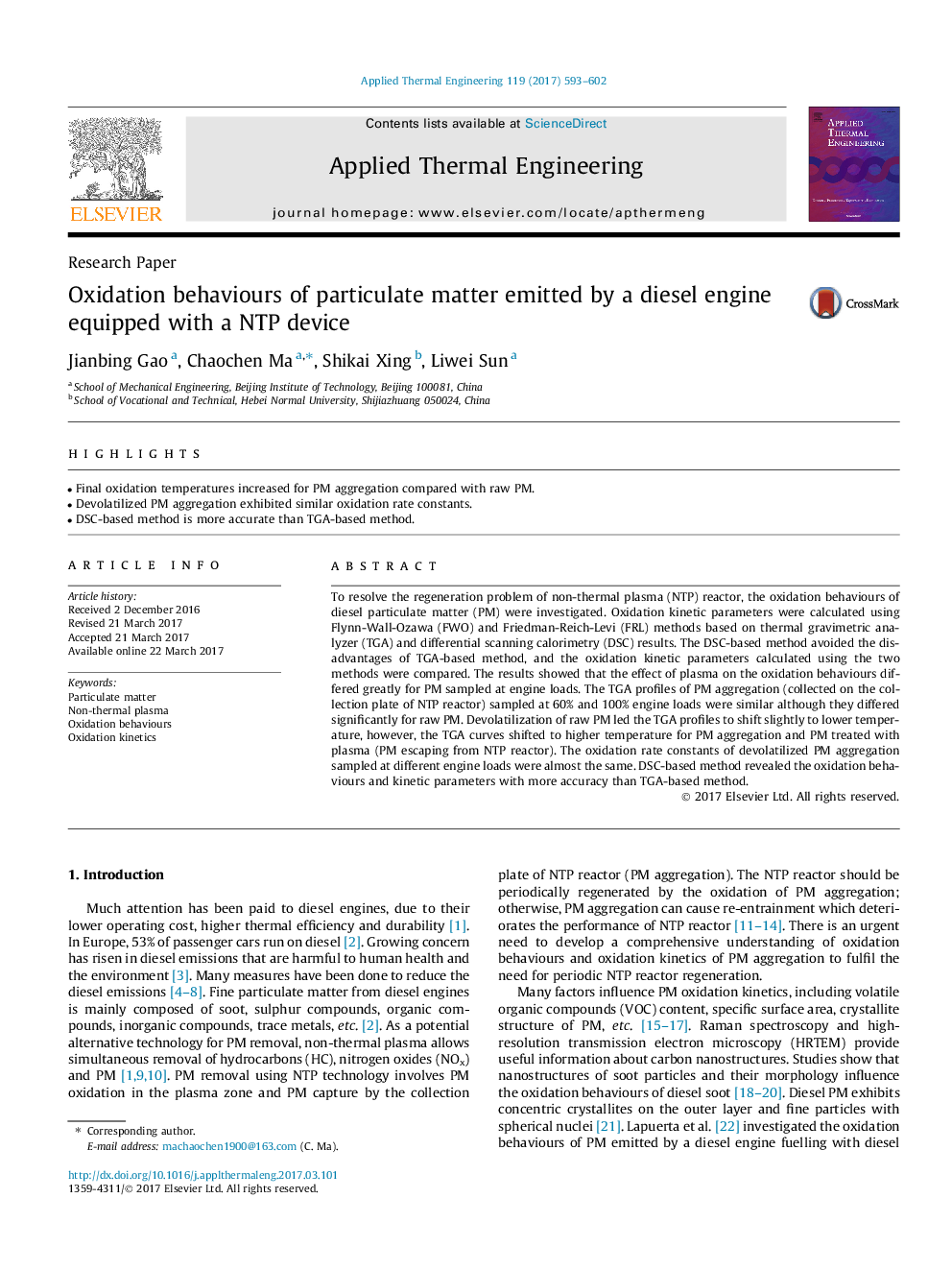| Article ID | Journal | Published Year | Pages | File Type |
|---|---|---|---|---|
| 4991319 | Applied Thermal Engineering | 2017 | 10 Pages |
Abstract
To resolve the regeneration problem of non-thermal plasma (NTP) reactor, the oxidation behaviours of diesel particulate matter (PM) were investigated. Oxidation kinetic parameters were calculated using Flynn-Wall-Ozawa (FWO) and Friedman-Reich-Levi (FRL) methods based on thermal gravimetric analyzer (TGA) and differential scanning calorimetry (DSC) results. The DSC-based method avoided the disadvantages of TGA-based method, and the oxidation kinetic parameters calculated using the two methods were compared. The results showed that the effect of plasma on the oxidation behaviours differed greatly for PM sampled at engine loads. The TGA profiles of PM aggregation (collected on the collection plate of NTP reactor) sampled at 60% and 100% engine loads were similar although they differed significantly for raw PM. Devolatilization of raw PM led the TGA profiles to shift slightly to lower temperature, however, the TGA curves shifted to higher temperature for PM aggregation and PM treated with plasma (PM escaping from NTP reactor). The oxidation rate constants of devolatilized PM aggregation sampled at different engine loads were almost the same. DSC-based method revealed the oxidation behaviours and kinetic parameters with more accuracy than TGA-based method.
Related Topics
Physical Sciences and Engineering
Chemical Engineering
Fluid Flow and Transfer Processes
Authors
Jianbing Gao, Chaochen Ma, Shikai Xing, Liwei Sun,
